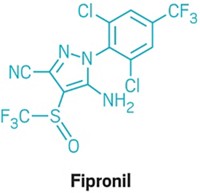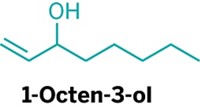Advertisement
Grab your lab coat. Let's get started
Welcome!
Welcome!
Create an account below to get 6 C&EN articles per month, receive newsletters and more - all free.
It seems this is your first time logging in online. Please enter the following information to continue.
As an ACS member you automatically get access to this site. All we need is few more details to create your reading experience.
Not you? Sign in with a different account.
Not you? Sign in with a different account.
ERROR 1
ERROR 1
ERROR 2
ERROR 2
ERROR 2
ERROR 2
ERROR 2
Password and Confirm password must match.
If you have an ACS member number, please enter it here so we can link this account to your membership. (optional)
ERROR 2
ACS values your privacy. By submitting your information, you are gaining access to C&EN and subscribing to our weekly newsletter. We use the information you provide to make your reading experience better, and we will never sell your data to third party members.
Biological Chemistry
Antifouling Agent Linked To Endangered Fish Deformities
Study implicates triphenyltin in Chinese sturgeon abnormalities
by Bethany Halford
June 1, 2009
| A version of this story appeared in
Volume 87, Issue 22

Abnormalities in the endangered Chinese sturgeon have been tied to triphenyltin, a pesticide and antifouling compound used on ship hulls and fishing nets (Proc. Natl. Acad. Sci. USA, DOI: 10.1073/pnas.0809434106). A team led by Jianying Hu of China's Peking University surveyed recently hatched Chinese sturgeon living in the Yangtze River and found that 7.5% suffered from serious deformities. Severe skeletal malformations were observed in 6.3% of the larvae, and 1.2% were born missing at least one eye. In confirmation of their suspicion that triphenyltin was to blame, Hu's group identified high levels of the compound in the livers and eggs of the fish. The researchers then were able to reproduce similar deformities at similar levels by injecting sturgeon eggs with triphenyltin at concentrations found in wild fish eggs. "Until now, there has been no direct evidence that exposure to synthetic compounds was related to adverse effects on the Chinese sturgeon population," the researchers note. "Thus, it has been difficult to make appropriate management policies for the protection of Chinese sturgeon."




Join the conversation
Contact the reporter
Submit a Letter to the Editor for publication
Engage with us on Twitter